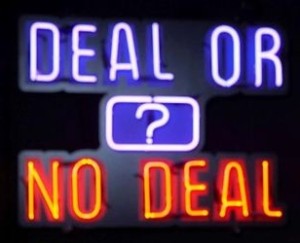
With all the language flying around about whether “‘no deal’ is in fact a bad deal. It is the worst of all deals” (Corbyn) or “no deal is better than a bad deal” (May) we need to be a little clearer about what is being discussed.
There is the existing acquis with the EU; this will come to an end at the end of March 2019.
After that, there are actually (at least) two distinct things that need to be done.
The first is the setting up of all the normal agreements that apply between sovereign states, as regards air transport for example. The second is what falls under the heading of a ‘free trade agreement’.
To be clear about the difference, consider that Canadian airlines happily flew to EU destinations prior to a free trade agreement being put into place last year.
Setting up the first sort of agreement will be a lot of work but need not provide any insuperable problems, so long as there is sufficient political will. After all, it is essentially about a re-branding exercise, rather than having to change what is presently happening. Setting up the second sort of agreement is much harder, for a free trade agreement is much, much more complicated.
Much of the doom-mongering about Brexit rests upon a conflation of these two agreements. So visions of air travel coming to a halt are based upon the notion that the first sort of agreement will not be implemented. I consider this quite a remote possibility – not impossible, just very unlikely. There will be dozens of civil servants on both sides whose sole job rests upon making sure that the world doesn’t come to an end in March 2017. I have every confidence that all the small details will be considered and an agreement signed.
With regard to a free trade agreement, I believe that the UK could *survive* without one, if need be, and I am philosophically inclined towards a more radical ‘unilateral free trade’ option, with some safeguards (eg to protect the NHS against predatory US health industries). Again, there could be a free trade agreement, as all the necessary elements are already in place – it’s a question of preserving something that already exists rather than creating something new out of nothing. However, I do remain sceptical that sufficient political will be generated in good time, so we do need to prepare for the hardest of Brexits. (Although, if in February 2019 Theresa May changes her mind and applies to join EFTA, I’m not sure what the EU could do to stop her!)
The reason why I used the word ‘survive’ above is because I am now much clearer about the costs that will come when we come out of the single market. Those costs will be real. However, they don’t make me regret supporting Brexit. I rather look towards where we shall be – as a sovereign state once again – in twenty, thirty, fifty years time. The EU will have gone through a ruinous time and may well not exist in that time frame, and even if it does, it will struggle with all sorts of financial and social catastrophes. We as a nation will be much better off outside that vortex rather than inside.
With a hard Brexit there will be five to ten years of significant economic pain (assuming the no-free-trade position remains). Those parts of our economy that have been most thoroughly integrated into the single market will bear the principal cost, and will be forced to adjust or die. Yet over the longer term, exposure to larger worldwide markets that are growing more quickly is a recipe for faster growth and more secure jobs.
This is the case that Theresa May needs to be making, rather than simple counter-productive sound-jibes against Jeremy Corbyn (whom I like). May has led an appalling campaign, revealing her own worst tendencies (that have been known about for some time). She needs to raise her game, and we as a nation need to raise our game. We are about to be launched from the side of a large passenger liner into choppy seas. Whether that liner is about to sink or not is no longer the most important question; rather, we need to steer a very clear course to ensure that we navigate our own waters successfully.

You must be logged in to post a comment.